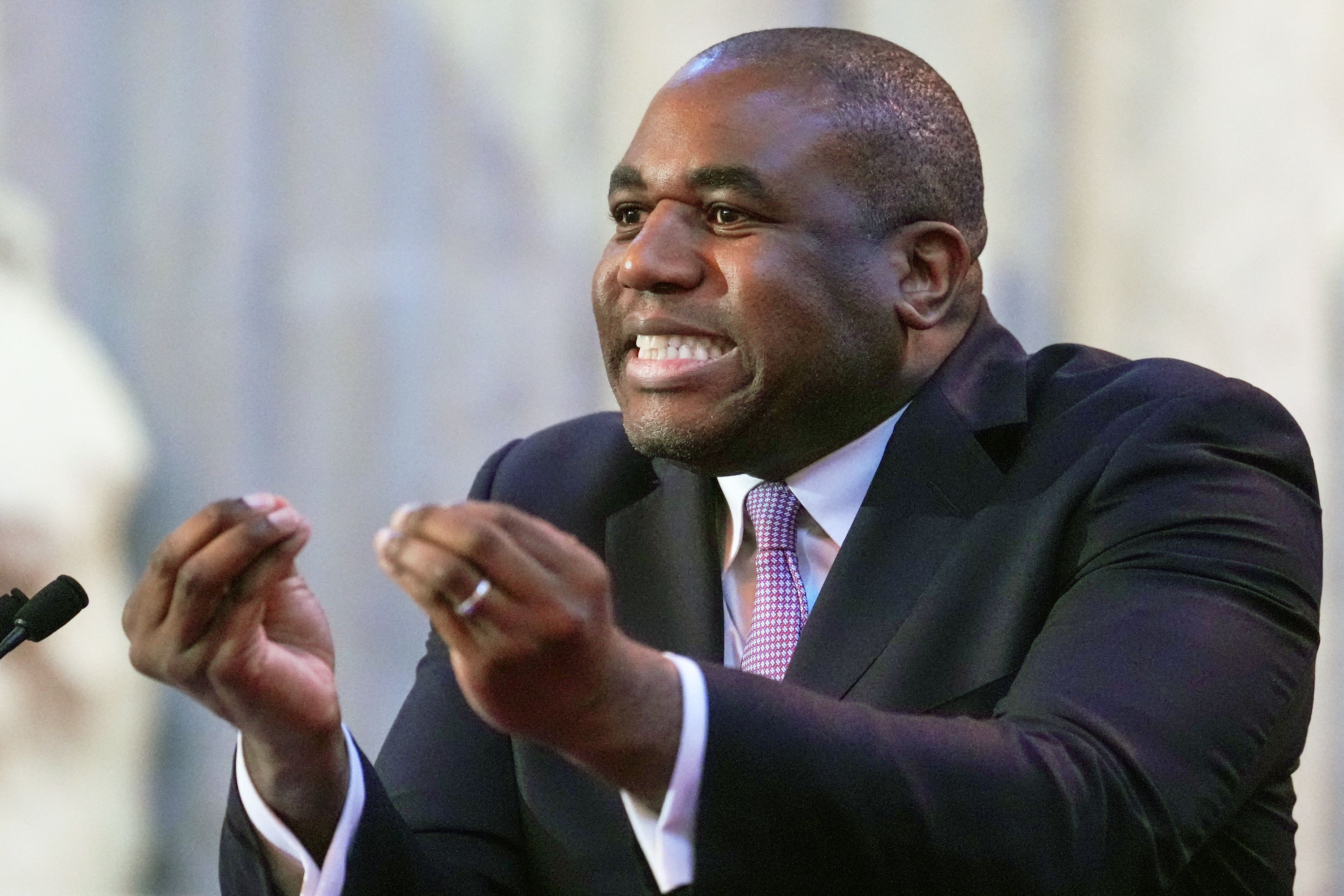Is Labour as desperate as the Tories were to negotiate trade deals around the world?
With David Lammy in India, Keir Starmer is keen to achieve a deal in order to show that he can ‘make Brexit work’, writes John Rentoul


Keir Starmer continues to insist that a Labour government is not going to seek to rejoin the single market or a customs union with the EU. An implication is that Britain will continue to make its own independent trade policy, and that it will continue to negotiate bilateral trade deals with other countries.
Which means that the prime minister – and David Lammy, the foreign secretary, and Jonathan Reynolds, the business and trade secretary – are just as keen as their Conservative predecessors were to strike deals. This would enable them to claim to be delivering on their promise to “Make Brexit Work”.
Which countries are top of Labour’s list?
Lammy is in India, where he is “pushing for a reset and relaunch of the UK-India partnership including through a free trade agreement that will benefit both economies”.
If this sounds familiar, it is because an India trade deal was one of many examples of Boris Johnson’s “boosterism”, in which his optimism about what was possible, and how quickly it was possible, outran the long grind of sector-by-sector negotiations. He promised a “deal by Diwali”, but by the time Diwali took place in October 2022, he had already been replaced by Liz Truss.
Truss, who as Johnson’s foreign secretary had done some of the high-level negotiating, hoped to secure the deal as prime minister, but even before she ran out of time she had clashed with Suella Braverman, her home secretary, who refused to agree to grant the number of visas to Indian workers sought by Narendra Modi’s government.
Rishi Sunak took up the baton, and handed it to Kemi Badenoch, his business and trade secretary, hoping to have a deal agreed by the end of 2023. Now it is Labour’s turn.
Which other countries are possible?
Starmer is understood to believe that he could secure a deal with the US. Again, if so, he would be succeeding where Johnson, for all his Brexit bluster, failed, and where slow progress was made by both Truss and Sunak. A meaningful deal with the US would be a hugely complex undertaking, but the prime minister thinks he can negotiate a “low-calorie” deal that could be sold as a significant improvement on the status quo.
A lot depends on who wins the US election in November, as Donald Trump is unlikely to expend any political capital on a deal with an anti-Brexit prime minister, who would be assumed to be anti-Trump. But even if Kamala Harris becomes president, the passage of trade deals through US Congress is notoriously arduous and time-consuming.
What about a better deal with the EU?
Of course, Britain’s most important trade deal is with the EU: the trade and cooperation agreement (TCA) that was signed by Johnson. It contains a clause requiring it to be reviewed from May 2026, but analysts at the think tank UK in a Changing Europe say that this will merely be “what the two parties decide to make of it”. So it is possible that Nick Thomas-Symonds, the UK’s new minister for European relations, could ask for talks about improving the TCA before then.
The EU has shown no interest in reopening the TCA, although Sunak did persuade it to amend the Northern Ireland protocol of the Brexit withdrawal agreement – the treaty that paved the way for the TCA – in order to ease problems with the Irish border.
So far, most attention has been focused on fairly minor issues such as a possible veterinary agreement and ways to simplify border checks, the full implementation of which has been repeatedly postponed ever since the UK left the EU in January 2020.
Subscribe to Independent Premium to bookmark this article
Want to bookmark your favourite articles and stories to read or reference later? Start your Independent Premium subscription today.
Join our commenting forum
Join thought-provoking conversations, follow other Independent readers and see their replies
Comments